| Country | Student fee |
|---|---|
Austria 2016/17 - student fees and grants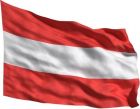 | EU students and those who are accorded the same rights do not have to pay tuition fees at universities and
Pädagogische Hochschule (University Colleges of Teacher Education). There are also no administrative fees. In
case students exceed the maximum study duration by more than a year, they have to pay EUR 363.36 per
semester. Exemption from fees may be given in cases such as studies or internships within transnational mobility
programmes, illness and pregnancy, to students with disabilities.
Fachhochschulen (universities of applied sciences) are entitled to charge fees up to the maximum amount of EUR 363.36 per semester. There is no short cycle programme in higher education in Austria. International students (i.e. non-EU and EEA students) at universities generally have to pay fees of EUR 726.72 per semester. Students from developing countries may be exempt from these fees according to a decision of the university. Students from the least developed countries are exempt from fees. Fachhochschulen are entitled to charge cost-covering fees, which are usually higher than EUR 363.36 per semester on non-EU and EEA students. |
Belgium - flemish 2016/17 - student fees and grants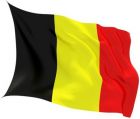 | The student fee in the first and the second cycles has two components: a fixed amount of EUR 230 and a flexible
part that differs with the number of ECTS credits followed. Each credit point carries a fee of EUR 11. This means
that on average for a full-time student (60 ECTS points) the total fee is EUR 890. The amount of fees varies with
the income of (the parents of) the student. Students who are eligible for a grant pay EUR 105 per academic year.
An intermediate tariff of EUR 470 applies for students who almost meet the income criteria linked to a need-based
grant. The amount of the tuition fees is fixed in the law (Codex Hoger Onderwijs). Students pay fees at the
beginning of the academic year, when they register for the programme.
For short-cycle tertiary programmes, the maximum tuition fee of EUR 1.50 per teaching hour is determined by the Flemish Government. Payment is made at registration. Some students (for example unemployed or students with special needs) pay no fees, a fee of EUR 0.30 per teaching hour or a fee of EUR 0.60 per teaching hour. There are no tuition fees for the associate degree programme for nursing. Fees for non-EU students which may be higher than for EU students are determined by higher education institutions. |
Belgium - french 2016/17 - student fees and grants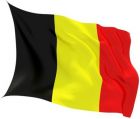 | Fee limits, set by the government of the French Community of Belgium, depend on the student's financial situation. The
maximum fee in short, first and second cycle programmes is EUR 836. Fees are not charged to students receiving a
grant, while students not receiving a grant but considered as lower income pay an intermediate fee.
There are some differences between university and non-university higher education institutions. 2016/17 is the last academic year when non-university higher education institutions can charge complementary registration and administrative fees in addition to registration fees, but the total amount cannot exceed EUR 836/year. Complementary registration and administrative fees range from EUR 0 (for grant holders) to EUR 179 depending on the type of programme and the financial situation of students and apply to all students. Non-EU students have to pay additional specific fees (droits d’inscription spécifiques). For programmes organised by university colleges and arts colleges, they are fixed by law: EUR 992 for professional programmes and EUR 1 487 for academic programmes in the 1st cycle; EUR 1 984 for 2nd cycle programmes. For university programmes, the law stipulates that the maximum amount should not exceed 5 times the registration fees. In practice, universities (through the Interuniversity Council) adopted harmonised amounts depending on the country of origin of the students ( 1 ). Non-EU students also pay the complementary registration and administrative fees. |
Belgium - german 2016/17 - student fees and grants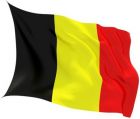 | Higher education provision exists only at the first cycle. All students have to pay fees at registration. Amounts
range in theory from EUR 100 to 600. In practice, all students pay the same amount of EUR 450.
There is no short or second cycle programme in the German-speaking Community of Belgium. Students from outside the European Union pay the same fees as Belgian and EU nationals. |
Bosnia and Herzegovina 2016/17 - student fees and grants | There are two basic types of financial status for students: budget-financed and self-financed. 50 % of full-time
students at the eight public universities and two other higher education institutions of Bosnia and Herzegovina are
'budget-financed students'. They are selected based on their good performance at secondary school and at the
entrance exam. Their tuition fees are paid by the responsible ministry of education, but students need to pay
administrative and other fees (entrance and application fees, fees for issuing diploma and diploma supplement,
etc.) ranging from BAM 94 to BAM 500.
50 % of full-time students at the universities pay tuition fees. Fees vary from faculty to faculty. These students also pay both administrative and tuition fees. The minimum annual fee for self-financing students in the first cycle is BAM 440 and the maximum is BAM 1 500, plus administrative fees. The most common annual fee in the first cycle is BAM 660. In the second cycle, annual fees range from BAM 440 to BAM 4 000. All 2nd cycle students pay tuition and administration fees. All part-time students (40 % of all students) pay tuition and administrative fees. In the 1st cycle, annual fees range from BAM 900 to 4 500; and in the 2nd cycle from BAM 1 000 to 3 000. There are no short cycle programmes in higher education institutions in Bosnia and Herzegovina. International students may pay higher tuition fees while other expenses are the same. |
Bulgaria 2016/17 - student fees and grants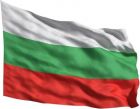 | Public higher education institutions define their own fees, but maximum amounts are set annually by the
government.
Student fees depend on the programme and field of study. The lowest fees are paid, for example, in social sciences, economics and law, the highest fees in arts, navigation programmes. The first cycle fees in the state universities, for full-time studies, range from BGN 300 to BGN 1 500 per year and for part-time studies from BGN 150 to BGN 1 100. Annual second cycle full-time study fees range from BGN 460 to BGN 1 050, and for part-time studies from BGN 370 to BGN 580. Full-time short cycle students pay from BGN 300 to BGN 1 600 per year, while part-time students between BGN 150 and BGN 1 000. Certain categories of students are exempted from paying fees. They include orphans, persons with disabilities, war invalids and senior cadets in military schools. Fee ranges for international students are also set by the government and depend on the study field. The actual amounts are defined by higher education institutions. They are usually higher than those paid by EU students. |
Croatia 2016/17 - student fees and grants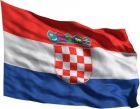 | Fees for all full-time students in the first year of short, first and second cycle programmes are fully covered by the
Ministry of Science, Education and Sports. Fees are also covered in full for all non-first year students who
achieved 55 ECTS or more in previous academic year.
Full-time students who do not fulfil the criteria for fee-exemption pay either full fee or part of the fee, depending on the criteria set by the individual HEIs. The share of fee-paying students has been roughly constant for the past few years: full fees are covered by the government for about 40 % of students, while about 60 % of students participate in fees to some extent. The full fees for all study programs range from HRK 3 700 to 7 500 per year. Part-time students, who make 28 % of total student population, pay full fees. International students from outside the EU also pay full fees. |
Cyprus 2016/17 - student fees and grants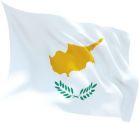 | Higher education institutions can define their own fees within limits set by the Ministry of Education and Culture.
First cycle: fees EUR 1 709 per semester (EUR 3 417 per year) for Cypriot students and for students admitted from EU countries. These fees are paid fully by the State. Second cycle: all students pay fees which range from EUR 4 100 to 10 250 per year. There is no short cycle education programme in public higher education. International students pay fees. Fees for students admitted from non-EU countries EUR 3 417 per semester (EUR 6 834 per year). |
Czech Republic 2016/17 - student fees and grants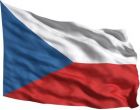 | Fees shown in the diagram are related to admission procedures and are paid once per cycle by all students. No
tuition fees are paid by higher education students, except those who exceed the regular length of study by more
than one year. Exemptions are made for students who become parents during their studies. The minimum fee is
CZK 9 651/academic year, based on the average cost of a student for the public budget set annually by the
Ministry of Education. No maximum is set by law.
Students of study programmes in a foreign language have to pay tuition fees. No maximum limit is set by law. Such arrangements are decided by each higher education institution. Higher education institutions can also charge fees for the recognition of higher education qualifications obtained abroad. There is no short cycle programme in the Czech Republic. Fees for international students are the same as for home students, as long as they study in the Czech language. |
Denmark 2016/17 - student fees and grants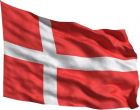 | No fees for national and EU full-time students.
All students studying in part-time courses pay fees set by higher education institutions, with a minimum of EUR 269. International students pay fees set by higher education institutions. |
England 2016/17 - student fees and grants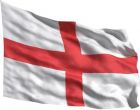 | 1st cycle full-time programme fees are set by institutions and capped at GBP 9 000 for public higher education
institutions. The average fee for 2015/16 was GBP 8 703 before fee waivers offered by institutions, and GBP 8 636
after fee waivers. Students are not required to pay up front and can apply for a loan to cover the full fee. First cycle
part-time programme fees are set by institutions and capped at GBP 6 750.
2nd cycle programme fees are unregulated and vary widely. The 'most common' shown (GBP 4 121) represents an indicative fee level for research students in 2016/17 set by Research Councils UK. Short cycle programme students pay the same fees as students in 1st cycle programmes. For the 1st and 2nd cycle international students, fees are unregulated. |
Estonia 2016/17 - student fees and grants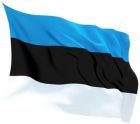 | All full-time students who achieve 30 ECTS per semester and 60 ECTS per year in the Estonian language
curriculum can study without paying any fees. Higher education institutions (HEIs) have the right to charge study
fees on 1st or 2nd cycle students who obtain fewer credits – on any ECTS missing from a 100 % study load. The
maximum cost of one ECTS is EUR 50. Higher fees are made in arts, medicine, veterinary, dentistry (EUR 100)
and in aircraft piloting (EUR 120). Exceptions are made for certain groups of students including disabled students,
students who are parents or guardians of a child under the age of 7, and parents of a disabled child.
There is no short cycle programme in higher education institutions in Estonia. HEIs have the right to demand compensation of study costs from part-time students or students studying in other languages than Estonian. 93 % of part time students pay fees. The same fees apply to international students (non-EU/EEA) as to national students. |
Finland 2016/17 - student fees and grants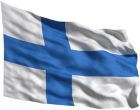 | No student fees.
Citizens of non-EU/EEA countries are liable to annual fees of at least EUR 1 500. There are no short cycle higher education programmes. |
Former Yugoslav Republic of Macedonia 2016/17 - student fees and grants | All students pay fees in public higher education.
In the first cycle, the annual fee ranges from MKD 6 150 to MKD 24 600, depending on the study profile. The most common fee is MKD 12 300. Exemptions or reductions are made for students with disabilities (first and second degree of disability), and orphans. Fees in the second cycle are between MKD 36 900 and 194 000 per year, depending on the study profile. The most common fee for second cycle is 123 000 per year. Annual fees for short cycle programmes range from MKD 6 150 to MKD 24 600, depending on the study profile. The most common fee is MKD 12 300. Exemptions or reductions are made for students with disabilities (first and second degree of disability), and orphans. International students pay higher fees – between MKD 123 390 and 185 000 per year – regardless of the study cycle. The fees are defined by the respective universities. |
France 2016/17 - student fees and grants | The amount of annual fee fixed by the Ministry of Higher Education and Research is EUR 184 in higher education
short cycle and first cycle (L1, L2, L3) and EUR 256 in the second cycle (M1, M2). In addition, a fee of EUR 215
per year is charged to all students aged 20-28. These fees are related to the social security system. Some
universities add associated costs related to specific services (e.g. for diplomas related to continuing learning and
training).The fees can reach more than EUR 2 000 per year.
Fees in the grandes écoles and engineering schools vary, but the most common amount is EUR 610 per year – not including fees related to social security (EUR 215) and partnerships with universities. Tuition fees in some institutions reach up to EUR 10 000 per year, depending on family income. However, there are also grandes écoles which not only deliver education without charging fees, but may even pay some students (such students are prospective civil servants and receive a wage from the State), e.g. in école polytechnique and écoles normales supérieures. Students who receive a grant (35.8 % of the student population in 2014/15) are exempted from fees. Non-EU students pay the same fees as those from within the EU. |
Germany 2016/17 - student fees and grants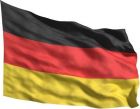 | In all German Länder, studying is free of charge for both full-time and part-time students. In 10 Länder, low administrative
fees are charged to all students.
Students in five Länder are liable to pay fees of EUR 500 (in Saarland, up to EUR 400) per semester when exceeding the regular study period. No HEI has actually done so. There is no short cycle higher education programme in Germany. Students from outside the EU and EEA countries do not pay fees either. |
Greece 2016/17 - student fees and grants | No fees for part-time or full-time students in the 1st cycle. Only students of the Hellenic Open University pay fees,
which range from annual EUR 550 (maximum 3 courses per year) to EUR 1 650.
2nd cycle students pay fees, specified by higher education institutions. In few 2nd cycle programmes, students do not pay fees. Fees for short cycle higher education programmes are set by individual higher education institutions. International (non-EU) students do not pay fees for their 1st cycle studies. |
Hungary 2016/17 - student fees and grants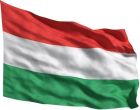 | There are two basic types of financial status for students: state-funded students do not pay fees, and self-financed
students do. State-funded places, available for both full- and part-time students, are awarded through a centralised
admissions procedure primarily based on academic performance but where some weight is given to disadvantaged
and disabled students. In 2015, 64.7 % of students were state-funded.
Higher education institutions (HEIs) set fees for self-financed students for the different levels and fields of study. Fees range from HUF 230 000 to 4 400 000 in the 1st cycle and from HUF 300 000 to 3 300 000 in the 2nd cycle. The fees are between HUF 300 000 and 2 700 000 in undivided master programmes. The fees vary from HUF 140 000 to HUF 400 000 for short cycle programmes. All international (non-EU/EEA) students pay fees. Information is not available on fee-ranges. |
Iceland 2016/17 - student fees and grants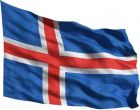 | All students at public higher education institutions pay administrative registration fee of ISK 75 000 per academic
year regardless of the study programme. Over 80 % of students at 1st and 2nd cycle study at public higher
education institutions.
The same rules apply to international students. |
Ireland 2016/17 - student fees and grants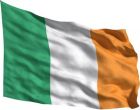 | Full-time first cycle students pay a 'student contribution' of EUR 3 000 per academic year. First-time
undergraduates who are EU/EEA/Swiss citizens and have been resident in EU/EEA/Switzerland for at least three
of the five years are exempt from full tuition fees. Those who do not meet the 'free fees' criteria must pay a
consolidated fee covering both tuition fee and student contribution – the average EU consolidated fee is
EUR 6 000.
For the second cycle, the majority of students pay tuition fees that are set by higher education institutions, and that may reach EUR 30 000 per year. Fees for short cycle higher education programmes are set by individual higher education institutions. No information is available on the fee range. Part-time fees are generally half of full tuition fees for full-time programmes. International student fees are generally two to three times higher than those of full EU fees and are set by the higher education institutions. |
Italy 2016/17 - student fees and grants | Higher education institutions (HEIs) define their fees at the beginning of the academic year, differentiating
according to the students' socio-economic background, field of studies, cycle, study status – full-time or part-time –
and year of registration. Furthermore, HEIs are obliged to exempt students benefiting from student support, and
may also exempt some students on the basis of merit. The total fee income at the end of financial year should not
be higher than 20 % of public funding. The ministry responsible for higher education sets the minimum enrolment
fee. For the academic year 2016/17, it is EUR 201.58.
Part-time students pay proportionally less than full-time students. Fees for short cycle higher education programmes vary depending on the provider. International students pay the same fees as national students. |
Latvia 2016/17 - student fees and grants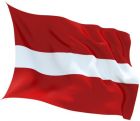 | There are two types of financial status for students: state-funded and self-financed. Students studying on state
subsidised places do not pay fees. These places are allocated on the basis of academic merit – currently available
in priority areas; natural sciences, computer sciences and engineering.
49.4 % of 1st cycle students and 38.4 % of 2nd cycle students (full-time and part-time together) are self-financing and pay fees. Almost all part-time students also pay fees. Each higher education institution (HEI) sets its own fees, tending to be lower in regional HEIs and highest in Riga. In the first cycle, annual fees range from EUR 720 to 6 403 for full-time and from EUR 800 to 2 600 for part-time studies, while in the 2nd cycle, from EUR 1 080 to 12 800 for full-time and EUR 980 to 14 500 for part-time studies. 43.6 % short-cycle tertiary or college programmes students pay fees ranging from EUR 700 to 3 800 for full-time studies per year and EUR 555 to 7 400 for part-time studies per year. Fees in programmes provided in English language are usually higher than programmes in Latvian. Fees for international students (non-EU/EEA) are higher, ranging from EUR 1 600 to 15 000. |
Liechtenstein 2016/17 - student fees and grants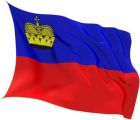 | Higher education institutions define their fee systems autonomously.
All students (including the international ones) at the University of Liechtenstein (the only public higher education institution in Liechtenstein) pay an annual fee of CHF 1 700 (CHF 850 per semester). There is no short cycle programme in higher education in Liechtenstein. |
Lithuania 2016/17 - student fees and grants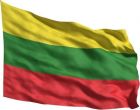 | There are two basic types of financial status for students: state-funded and self-financed. The Ministry of Education
and Science determines the maximum amount of fees that it will cover for each study field and form of study (full-
time/part-time). However, higher education institutions (HEIs) have autonomy to set their own fee levels. Thus
students studying in state subsidised places have at least part of their fees paid by the government.
Annual first-cycle fees range from EUR 1 076 to 11 610 for full-time, and EUR 717 to 7 740 for part-time. Annual second cycle fees range from EUR 2 265 to 12 604 for full-time and EUR 1 510 to EUR 8 403 for part-time. There is no short cycle higher education in Lithuania. HEIs can set different fees for citizens of non-EU and non-EEA countries. |
Luxembourg 2015/16 - student fees and grants | First cycle students pay an enrolment fee of EUR 400 for semesters 1 and 2, and EUR 200 for semesters 3 to 6.
Fees for bachelor programmes where only the first two semesters are taught in Luxembourg (Medicine, Pharmacy
and English), amount to 200 EUR per semester.
In the second cycle, for 80 % of the Master programmes at the University of Luxembourg, students pay EUR 400/year. Only students in Banking, Finance and Wealth management pay the maximum yearly fees. Enrolment fees for short cycle programmes 'Brevet de technicien supérieur' are EUR 100 per semester. The same conditions apply to part- and full-time students. International students pay the same fees as national students. |
Malta 2016/17 - student fees and grants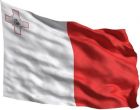 | No fees apply for Maltese and EU/EFTA/EEA nationals following first-cycle full-time and part-time day courses at
the University of Malta, Malta College of Arts, Science and Technology (MCAST). Part-time courses are only
offered by the University of Malta. Part-time evening courses are self-financing (EUR 900/year).
In the second cycle, the annual fee is EUR 400 for all Maltese and EU nationals at the University of Malta. No fee applies if the 2nd cycle programmes is required to practise a profession. Students following 2nd cycle courses offered jointly with foreign universities pay higher fees. Annual fees for full-time evening courses range from EUR 400 to EUR 14 500 (most common is EUR 400). Annual fees for part-time studies range from EUR 400 to EUR 4 500 (most common is EUR 1 600) There is no fee for EU/EFTA/EEA nationals in full-time short cycle programmes at the University of Malta, the Malta College of Arts, Science and Technology (MCAST) and the Institute for Tourism Studies (ITS). Students in part-time short cycle programmes pay EUR 900 per year. International students pay fees, and these are higher than those paid by Maltese and EU nationals. |
Montenegro 2016/17 - student fees and grants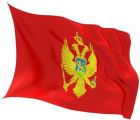 | There are two basic types of financial status for students: state subsidised and self-financed. The government
annually decides about the number of students whose tuition fees it will pay (in specific study fields and the
capacities of institutions). To receive state-financing students need to meet certain performance criteria. State-
financed students who fail to meet the criteria may continue their studies as self-financing students.
Self-financing students in the first cycle at the University of Montenegro (the only public university) pay between EUR 500 and EUR 1 000 per year, depending on the study profile. The most common fee level is EUR 500. Self- financing students who pass all exams may become budget-funded students if there are places available on their study programme. Those students are chosen on the basis of the ECTS gained and academic performance during their studies. Fees at the second cycle are between EUR 1 500-2 000 per year. There is no short cycle programme at higher education institutions in Montenegro. International students are charged the same fees as Montenegrin students. |
Netherlands 2016/17 - student fees and grants | Fees are determined centrally (currently EUR 1 984 for 2016/17) and have to be paid by all students (1st cycle, 2nd cycle, short cycle).
Students in part-time programmes or programmes combining study and work (dual courses) pay between EUR 1 163 and 1 984 upon the
decision of the higher education institution.
The fees of a second bachelor or master in higher professional education are on average between EUR 6 500 and 7 000, while fees for a second university bachelor are on average EUR 8 000, with a maximum of EUR 32 000 for medicine. The amount for a second university master is about EUR 12 000, with a maximum of EUR 32 000 for economics (one programme) and health care programmes, including medicine. International students – outside a country in the EEA, Surinam or Switzerland – pay non statutory fees determined by the higher education institutions without any guidelines from the Ministry. |
Norway 2016/17 - student fees and grants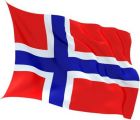 | No fees for either full- or part-time students at public higher education institutions, which cater for over 85 % of all
students in Norway.
Government-dependent as well as independent private higher education institutions may on certain conditions charge tuition fees, and these fees must be used to benefit students. International students are treated as home students, and do not pay fees at public higher education institutions. HEIs may charge tuition fees for certain specialised/tailored courses within continuing and further education aimed at people in employment. |
Nothern Ireland 2016/17 - student fees and grants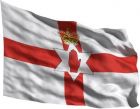 | 1st cycle full-time programmes: fees are set by institutions but capped at GBP 3 925. Students are not required to
pay up front and can apply for a loan to cover the full fee.
1st cycle part-time programmes: fees are unregulated and loans are not available. 2nd cycle: fees are unregulated and vary widely. The 'most common' shown (GBP 4 121) represents an indicative fee level for research students in 2016/17 set by Research Councils UK. Short cycle programmes: the same fees apply as for students taking 1st cycle programmes. 1st and 2nd cycle international students: fees are unregulated. |
Poland 2016/17 - student fees and grants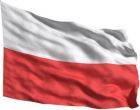 | Full-time students in public higher education institutions are charged tuition fees only if repeating a study course.
Part-time students pay annual tuition fees of, on average, about PLN 4 700 set by higher education institutions.
Each institution may provide exemptions and reductions.
All students pay a maximum fee of PLN 150 related to enrolment procedures once per study cycle. Students also pay administrative fees which include the issue of student ID cards, student record books and diplomas. There is no short cycle programme in Poland. Students from the EU and EFTA countries and other defined categories (e.g. students with refugee status) study according to the same rules as Polish citizens. Fees for other international students are decided by HEIs. |
Portugal 2016/17 - student fees and grants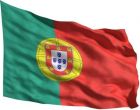 | The annual tuition fee for 1st cycle programmes, integrated 2nd cycle programmes (mestrados integrados) and for
2nd cycle programmes (mestrados) that are legally required after a 1st cycle degree for the practice of a specific
profession is fixed by each public higher education institution. It ranges from EUR 656.50 to 1 063.47. Both
minimum and maximum values of the above fees are frozen for the 2016/17 academic year.
For all other 2nd cycle programmes, tuition fees are set freely by public higher education institutions, with no limits imposed. There is a wide range of tuition fees depending mainly on the cost and quality of the course. The annual tuition fee for short cycle programmes are defined by individual institutions. It cannot be above EUR 1 063.00 (the maximum value for the 1st cycle courses, integrated 2nd cycle courses and for 2nd cycle courses legally required for the practice of a specific profession). International students pay higher fees than national students, and higher education institutions are autonomous to decide on the amounts charged. |
Romania 2016/17 - student fees and grants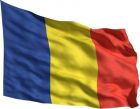 | There are two types of financial status for students: state-funded and self-financed. Each year, the government
decides on the number of state funded places. All students pay registration fees set by higher education
institutions.
For fee-paying students, each university senate decides on the level of fees for each programme, as well as on exemptions based on need or merit. Fees are calculated on the basis of the average number of full-time students and the amount of state budget: For the first cycle: RON 2 410 for social science fields; RON 4 752.96 for engineering and computer systems fields and maximum of RON 23 166.91 for arts (film). For the second cycle: RON 4874.56 for social science fields; RON 8 230 for engineering and computer systems fields and maximum of RON 36 591.16 for arts (film). There is no short cycle higher education provision in Romania. International students pay fees. The value of the minimum fee is set by law for each field. |
Scotland 2016/17 - student fees and grants | For the short cycle and first cycle, full-time Scottish and EU students do not pay fees. Students from England,
Wales and Northern Ireland are required to pay fees up to a maximum of GBP 9 000, in line with the maximum fee
charged in the rest of the UK. Fees for part-time students are unregulated but are usually a proportion of the full-
time equivalent fee.
In the second cycle, fees are unregulated, differing by field of study and full- or part-time attendance. Fees for international (non-EU) students are unregulated and set by the higher education institutions. |
Serbia 2016/17 - student fees and grants | Students in public higher education institutions can be 'budget-financed' and 'self-financing'. Only full-time student
status exists. 'Budget-financed' students (42.96 % in 2016) are selected at entry based on entrance exam score
and secondary school results, and during the course based on their study performance. Their tuition fees are
covered by the state, while students pay administrative and other costs (entrance and application fees, fees for
issuing diploma and diploma supplement, etc.) ranging from RSD 4 000 to 30 000 per year.
'Self-financed' students pay both administrative and tuition fees, which range from RSD 30 000 to 248 500 per year on Bachelor level and RSD 40 000 to 785 492 on Master level, including both academic and applied studies. There is no short cycle programme in higher education in Serbia. Foreign students usually pay higher tuition fees. The most common annual fee is EUR 2 000. |
Slovakia 2016/17 - student fees and grants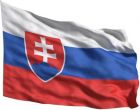 | All students pay registration fees of EUR 10 to EUR 100 per academic year. Full-time (short, 1st and 2nd cycle)
students in public higher education institutions not exceeding the 'regular' length of study for the study programme
do not pay tuition fees.
Students who exceed a 'regular' length of study, or who study two or more programmes concurrently in the same academic year have to pay tuition fees which cannot exceed EUR 1 800 per academic year for both first and second cycle studies. Students admitted to an external/part-time study programme pay fees up to an annual maximum of EUR 2 050 in the first cycle and EUR 3 080 in the second cycle. Students in a study programme which is provided exclusively in a language other than the state language pay tuition fees, which are set by respective higher education institutions. Tuition and other fees at public higher education institutions cannot exceed 50 % of the average costs of full-time education. Non-EU students pay higher tuition fees of EUR 2 000 to 10 000/year. |
Slovenia 2016/17 - student fees and grants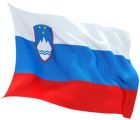 | Full-time students pay only registration charges (short cycle: EUR 20-30; 1st and 2nd cycle: EUR 21-29), and
costs of field work and excursions if required by study programme. No tuition fees for national and EU full-time
students.
Part-time students and international students pay the same fees which are set by higher education institutions. Tuition fees in the first cycle range from EUR 1 950 to EUR 9 020 and from EUR 800 to EUR 15 831 EUR for the second cycle. Tuition fees in short-cycle higher education range from EUR 1 045 to EUR 3 250. |
Spain 2016/17 - student fees and grants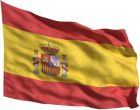 | The amount of fees is determined by the study field, the level (1st or 2nd cycle), the number of ECTS taken and
the number of times a student has taken each subject. In addition, amounts differ between Autonomous
Communities as each one has a different fee range. There is no difference in fees between full-time and part-time
students.
Short cycle students are not required to pay any fees in most Autonomous Communities. Exemptions from fees are possible and based on need criteria. In addition, large families and disabled persons have very significant discounts, and may even be exempt. International students (non-EU) who do not have resident status in Spain may have to pay fees, depending on the region. |
Sweden 2016/17 - student fees and grants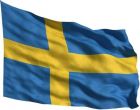 | No fees for Swedish/EU/EFTA/EEA full-time and part-time students.
Other international students pay fees since autumn 2011. Higher education institutions determine the size of the fees, based on the principle of full cost coverage. As of 1 February 2015, Swedish/EU/EFTA/EEA full-time and part-time students can be subject to tuition fees when taking part in joint and multiple degree programmes if the fees do not go to the Swedish institution and do not relate to the part of the education organised by the Swedish institution. |
Switzerland 2016/17 - student fees and grants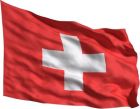 | All students (short-cycle, first and second cycle) pay fees. Higher education institutions define their own fees. Fees
usually comprise fees for administration (admission, registration, certification) and tuition. Additional contributions
for examinations, libraries, sport facilities, social and cultural institutions are possible.
Students on leave of absence, medical students during their placement year, doctoral students pay reduced fees. Students in difficult economic circumstances or part-time students can apply for a waiver or reduction of tuition fees at most higher education institutions. There are no short cycle programmes in public or publicly subsidised higher education institutions in Switzerland. Some higher education institutions charge higher fees for students from EU and beyond. |
Turkey 2016/17 - student fees and grants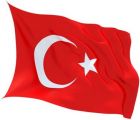 | Public university students following first cycle daytime education programmes do not pay fees. Public universities
may charges fees for evening programmes, which range from TL 962 and TL 2 134 per year.
In the 2nd cycle, public universities do not charge fees in daytime programmes. While fees in evening programmes vary among universities. No fees are charged for participating in full-time daytime short cycle programmes in public higher education institutions. Students in evening education pay fees (TL 770-TL 4 268 per year). International students pay higher fees. |
Wales 2016/17 - student fees and grants | 1st cycle full-time programmes: fees are set by institutions but capped at GBP 9 000 for institutions with an approved
tuition fee plan to promote fair access (to safeguard fair access for low income and other under-represented groups)
and GBP 4 000 for institutions without a plan. Students are not required to pay up front and can apply for a fee grant.
1st cycle part-time programmes: the maximum fee is GBP 2 625 for Welsh students studying in Wales. 2nd cycle programmes: fees are unregulated and vary widely. The 'most common' shown (GBP 4 121) represents an indicative fee level for research students in 2016/17 set by Research Councils UK. Short cycle programmes: the same fees apply as for students taking 1st cycle programmes. 1st and 2nd cycle international students: fees are unregulated. |